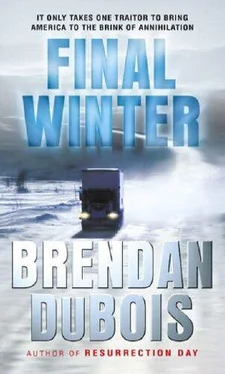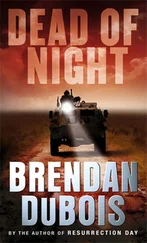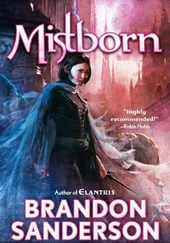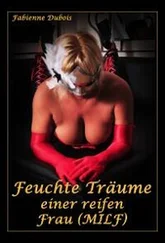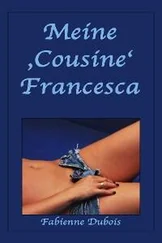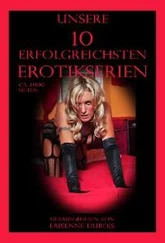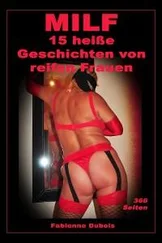There was an old black-and-white photo of the family farm, creased and faded, which was passed around family gatherings, like one of the relics the Christians loved to possess and collect, and Hamad never had any patience for this reminiscing. Remembering past glories was the sign of losers. Like the Greeks recalling their ancient knowledge and the Italians their ancient empire, many of his family members and others were content to sit still and moan about their misfortune at the hands of the Jews and the British and the Americans.
But not Hamad. And especially not after that night when an American-built helicopter — an Apache Longbow, built in Kentucky — had been aiming for some visiting Iranian mullah in a Mercedes, traveling down one of the narrow and dingy streets of his village, and the first missile had missed the speeding car and had gone instead into one of those concrete cubes put up by the UN, hiring out corrupt contractors who poured cheap concrete and not enough reinforcing bars, so that when the missile exploded the two stories pancaked into a heap of dust and debris, crushing the bodies of his mother and father and older brother.
No, not after that night. After that night, Hamad cared about one and one thing only: to do whatever was necessary so that in a very short time what was left of America would have its people dreaming about and remembering their past glories, their past achievements, before the righteous in the world had risen up and had ground them into dust.
There. An empty space. He parked his rental car, felt his hands shake for just a moment as he switched off the engine. Where to put the keys? In his pocket? Or leave them in the car? What made the best sense?
He looked at the keys, proud now that his hand was still, like the disciplined warrior he was. The keys went back into the ignition. He would leave the car unlocked. He stepped out into the cool morning air on this Christian Sabbath day and went into the rear of the car. He was wearing a light blue jumpsuit with the name Hank embroidered in red thread over the left breast, and over the right breast was a badge that said Colonial Flowers. He felt slightly disgusted at having to be dressed like a common trader. His intelligence, his dedication, his skills deserved better than this. But then he remembered how it had begun, back near Jenin, when the Sudanese had talked to him.
~ * ~
The Sudanese had been tall and very black, the blackest man that Hamad Suseel had ever seen. But he was a fellow believer and had come to spend some time in their village, speaking to the elders and the members of the brotherhood — the fighters, the holy warriors — and it was during these times when Hamad had sat alone in the corner, not saying a word, just watching. It had been a month since his family had been murdered by the Jews and the Americans, and never in his life had he been so cold. Even in the warmest nights he needed two or three blankets, for the coldness in his heart would cause him to shiver.
The Sudanese, with his piercing dark eyes, seemed to have noticed his quiet nature during the meetings, for on the third night he had spoken to him alone. The conversation had been quick and to the point.
Al-es salaam,’ the Sudanese had said.
‘And the blessings of God be upon you,’ Hamad had replied.
‘I know what happened to your mother and father and brother. For that you have my sympathy.’
‘You are too kind.’
The Sudanese had cocked his head for a moment. ‘I am told that during the month since the attacks, you have not fought back. Why is that? Are you waiting for the right moment?’
Hamad clenched his fists, standing in the dark alley that stank of garbage and the open sewer. Why, he had thought, why had it come to us that cities in other countries — and on their flickering television, they all knew what other cities looked like, even if they could not actually smell them -never had this kind of stink, this kind of filth, this kind of grinding day-to-day oppression from invaders with clean uniforms and good meals and warm homes to go to at night?
‘No,’ he had said. ‘I am waiting for the right target.’
The Sudanese had nodded at that. ‘Go on, my friend. I would like to know what you mean by a “right target”.’
Then it came out, in a torrent.
‘What use is this kind of fighting?’ Hamad had said. ‘Our brave boys and girls wear martyrdom belts, they go into pizza shops and buses and playgrounds and kill themselves and other boys and girls, and sometimes old men and old women too. Oh, such glory, such honor, such bravery! For generations their actions will be celebrated in song and verse, like those of the blessed Saladin!’ he added in a mocking tone. And he wondered if he had spoken too harshly, but the Sudanese seemed to appreciate what he had said.
‘Yes, yes,’ the black man had said. ‘I agree.’
Hamad had then said, ‘The bombs, the shootings, the rock-throwing — what does it accomplish? It makes us bitter. It makes us beggars to the world, asking for scraps of money and support, for bags of rice and beans from the UN, for occasional kind words from the French and the Russians and the Americans. And for what? The Jews have gotten stronger, we have gotten weaker, and when we are not ignored, we are laughed at. Laughed at!’
The Sudanese had said, ‘And? What is to be done, then?’
Hamad had said, ‘What is to be done is to strike hard, and to strike hard at the heart. That is what must be done. To wait patiently, to plan, to think ahead…and that is what I have been doing these past days, as I continue to mourn my mother and father and brother. I am planning to kill some big shot, some important American. They come here, every now and then. All puffed up and proud. The head of the CIA. The Secretary of State. The Secretary of Defense. Somehow…somehow, I will find out when such a man or woman is coming here, and then I will kill them. By a bomb in the street. Or from the air. Or from a bomb around my own waist. Whatever it takes. And no doubt I will die in the process, but justice will be done.’
The Sudanese had suddenly shaken his hand. Hamad had felt queasy for a moment at having the man’s dark skin touch his own, and the Sudanese had said, ‘We will speak later.’
And speak later they did. In the early morning hours the next day, as the Sudanese was preparing to leave, he had said, ‘There is need for a thoughtful man such as yourself, Hamad. Will you come with me, to fight your war? And not here, but in America?’
‘Of course,’ Hamad had said and had left at once, not even bothering to pack anything. For the Sudanese said everything would be taken care of, and the Sudanese, Hamad quickly learned, always told the truth.
~ * ~
Hamad opened the rear door of the rental car, took out the long cardboard box with the red and white ribbons. Again, he felt like a fool, but the moment was a fleeting one. He was no fool. He was a warrior.
He walked the distance to the squat glass and metal building, pasting on a phony smile that all Westerners loved to see on dark-skinned men who came to their country. He took his time going up the walkway, the box in his hands. He supposed it should have felt heavy and awkward in his grip but it was as though he was carrying a bag of rose petals, it was so light.
Up ahead was the arched trellis, and Hamad recalled what was there. He’d been told by the someone who had sent him e-mail messages once he got to the United States who had also told him what was beyond the trellis and the glass doors. He took a breath, and just as he reached the trellis—
He broke into a run. The cardboard box falling open in his hands, the bandoleer with the Russian-made RGN-86 fragmentation grenades coming out and over his shoulder, in his grip the folded-up and cut-down Chinese-made SKS-12, a cheap piece of shit that wasn’t good at long distance, but distance wasn’t his concern, what mattered was close-in firing, and in seconds he was through the doors. There, just as predicted, a large-titted whore sat behind the desk and before she could even react he fired three times into her chest, making her fall back with a squeal and a spray of blood and tissue on the wall behind her.
Читать дальше
